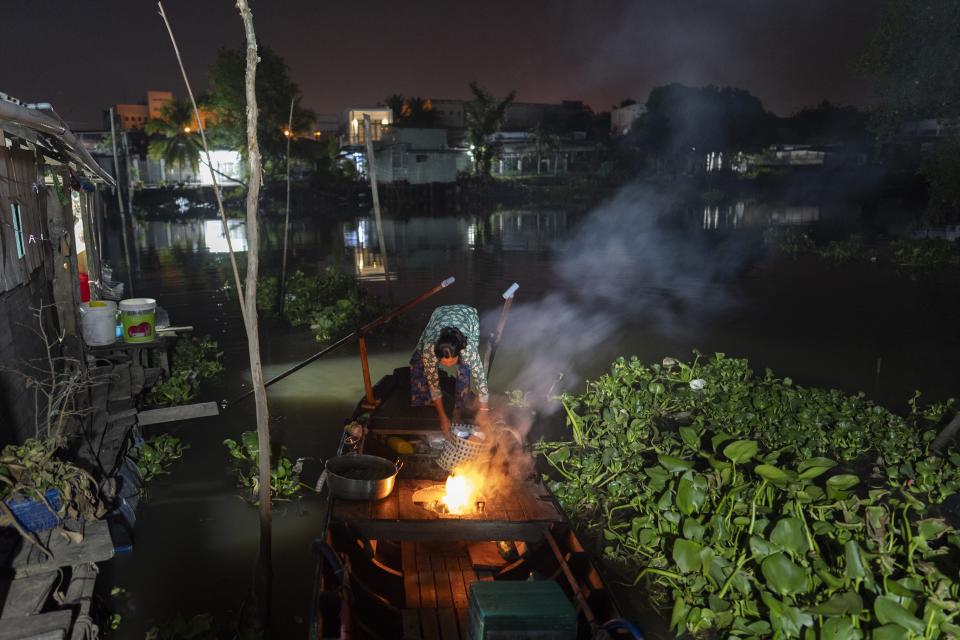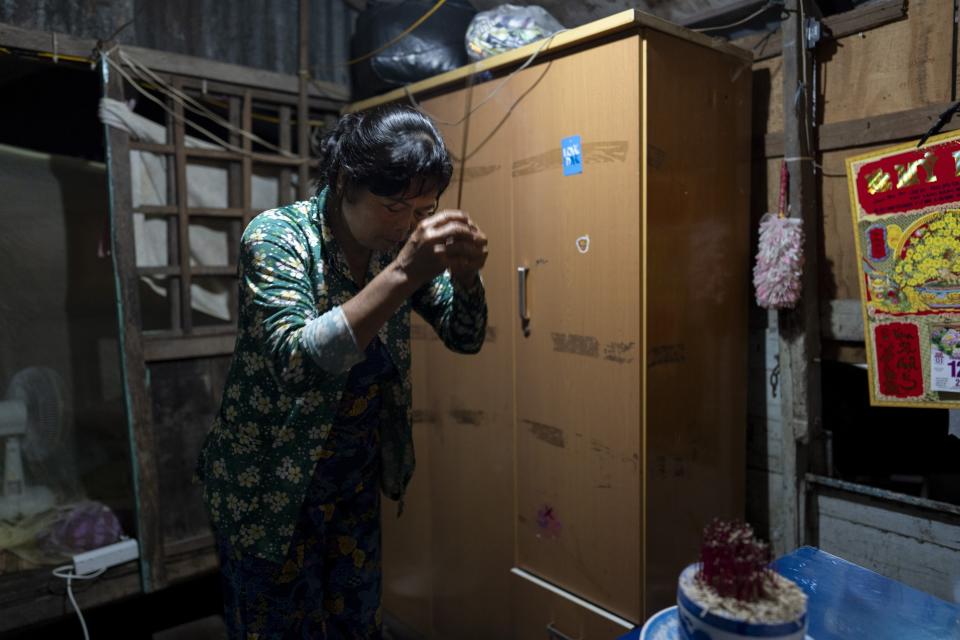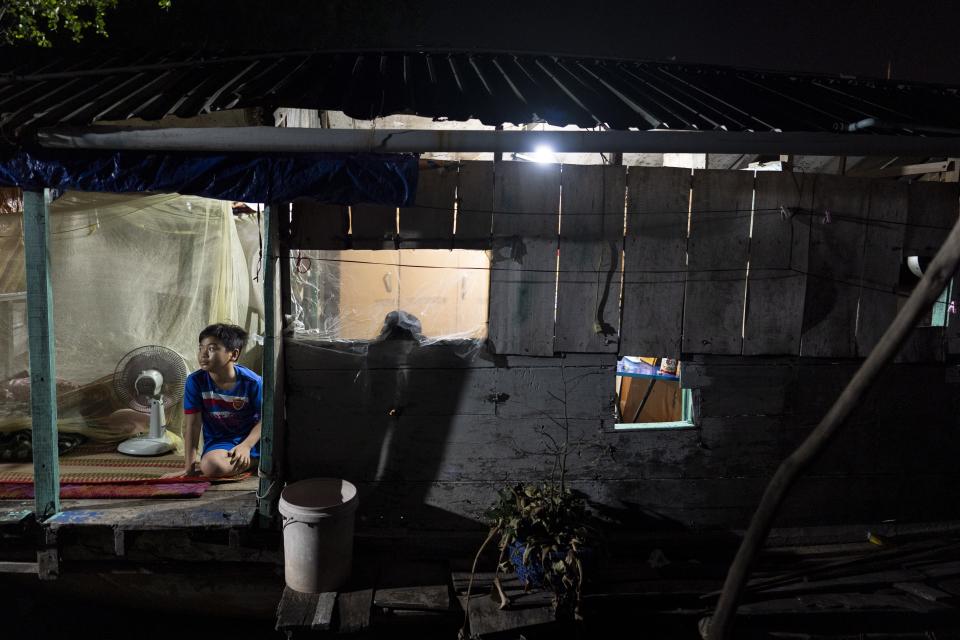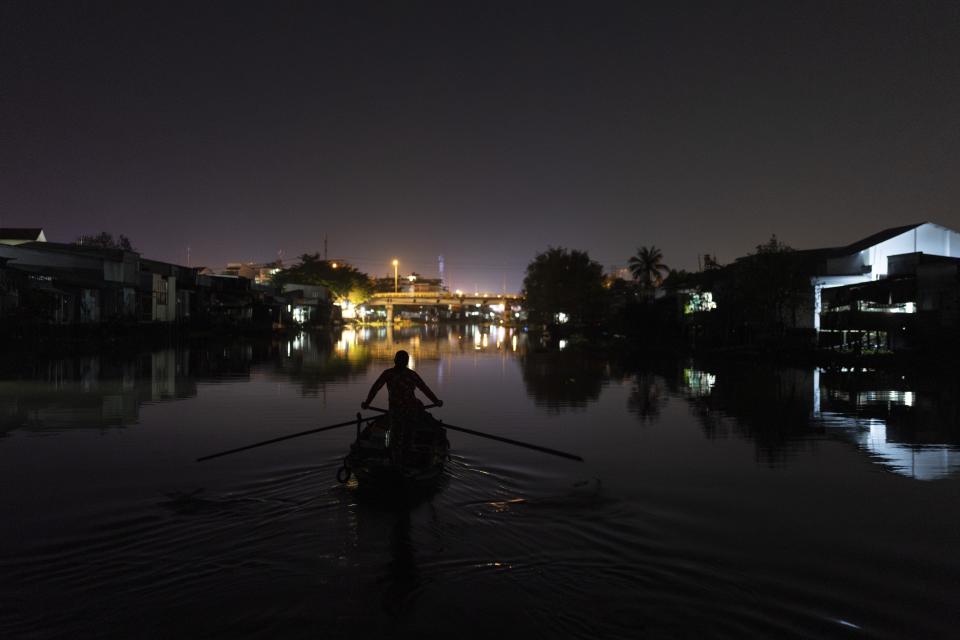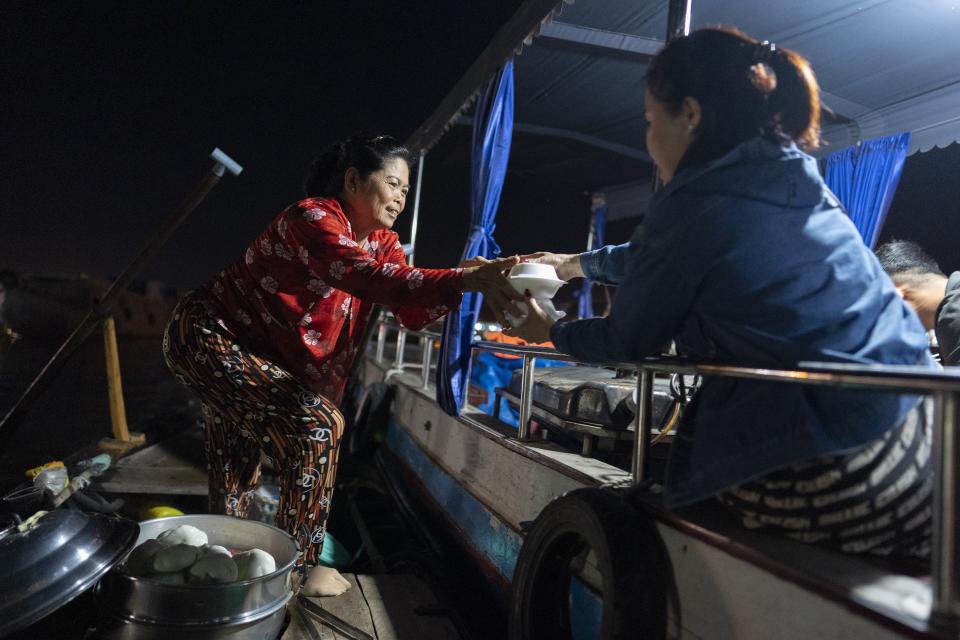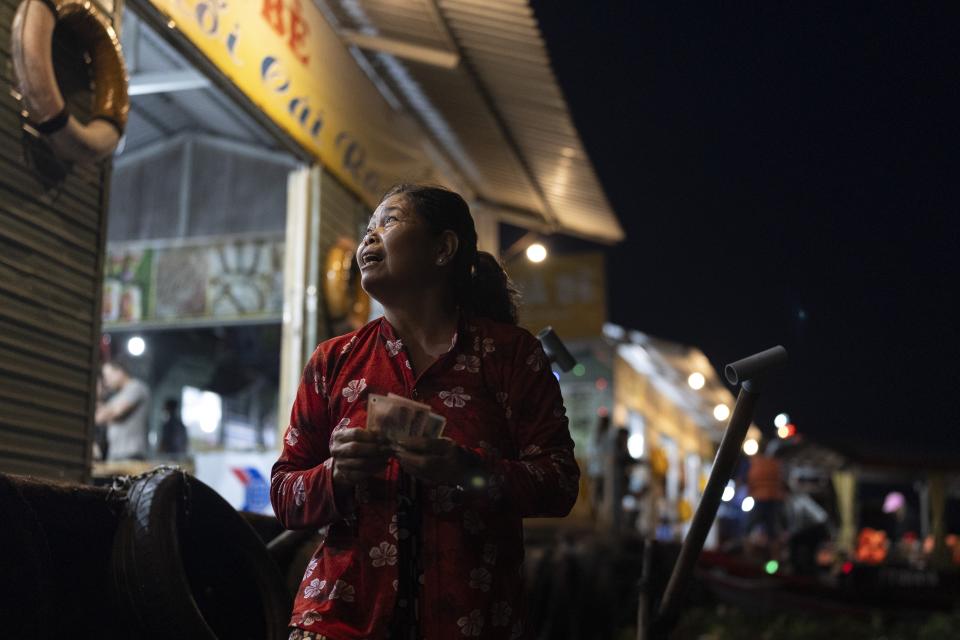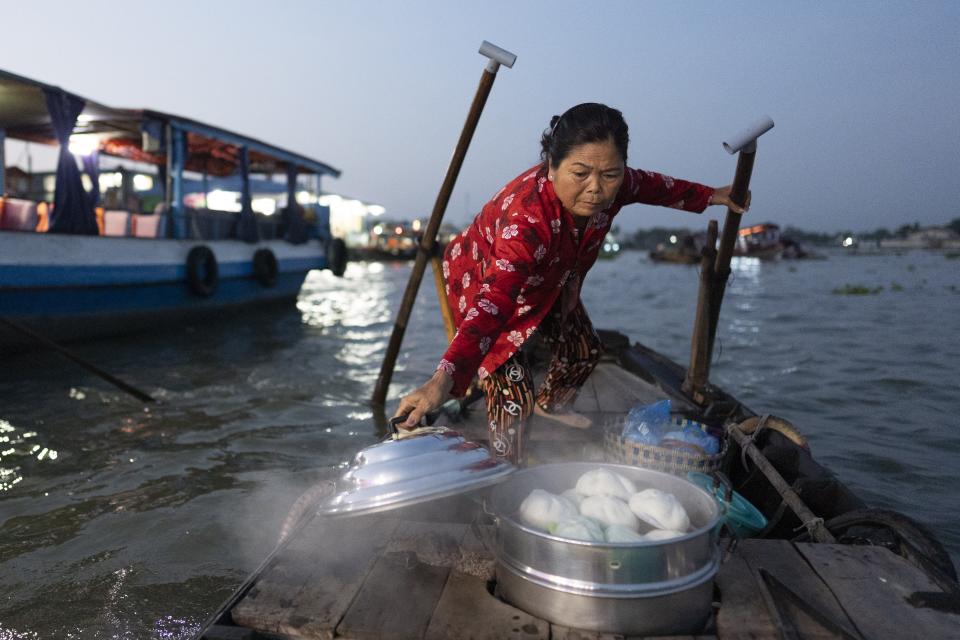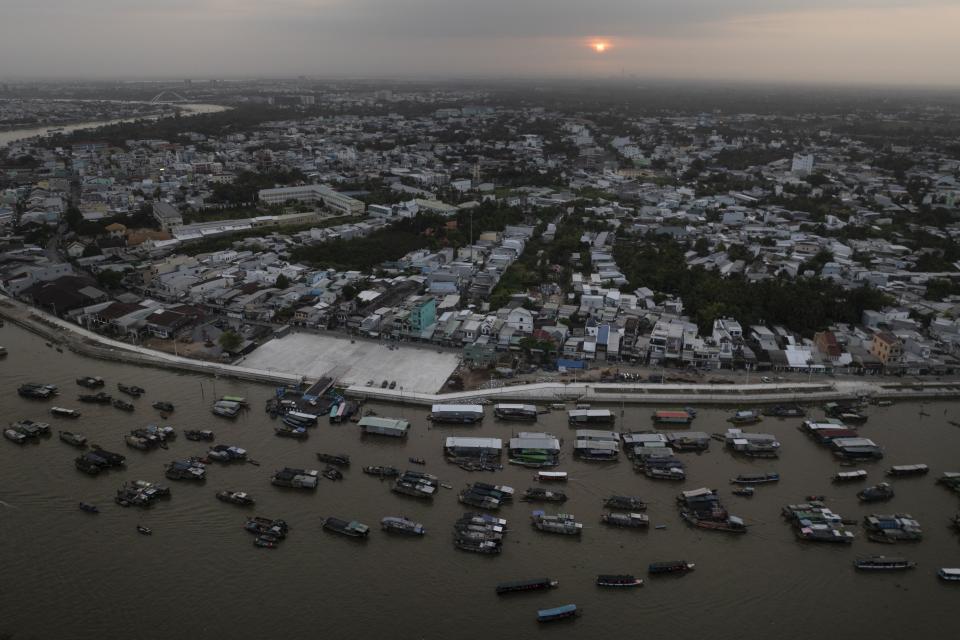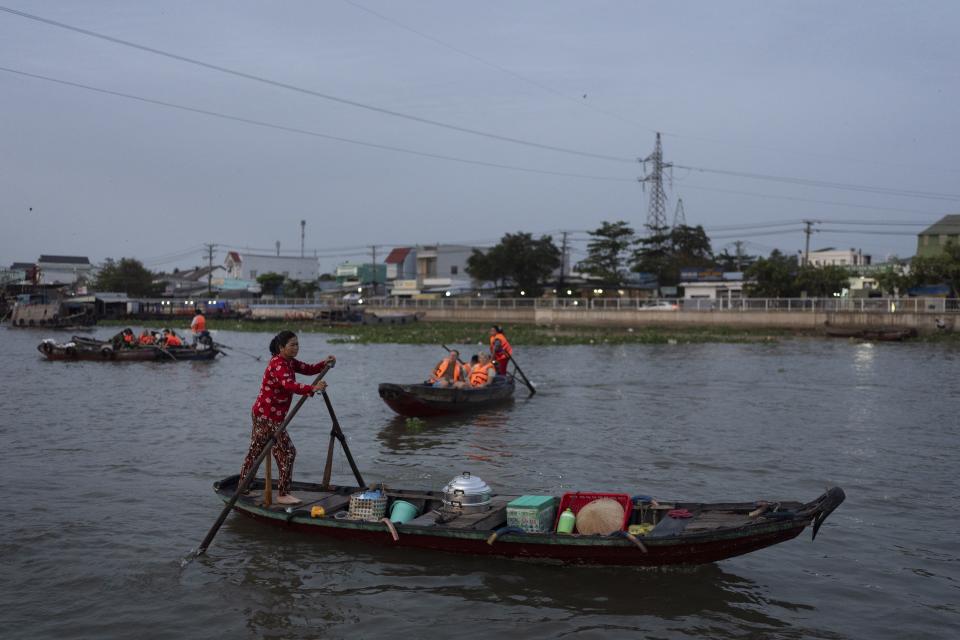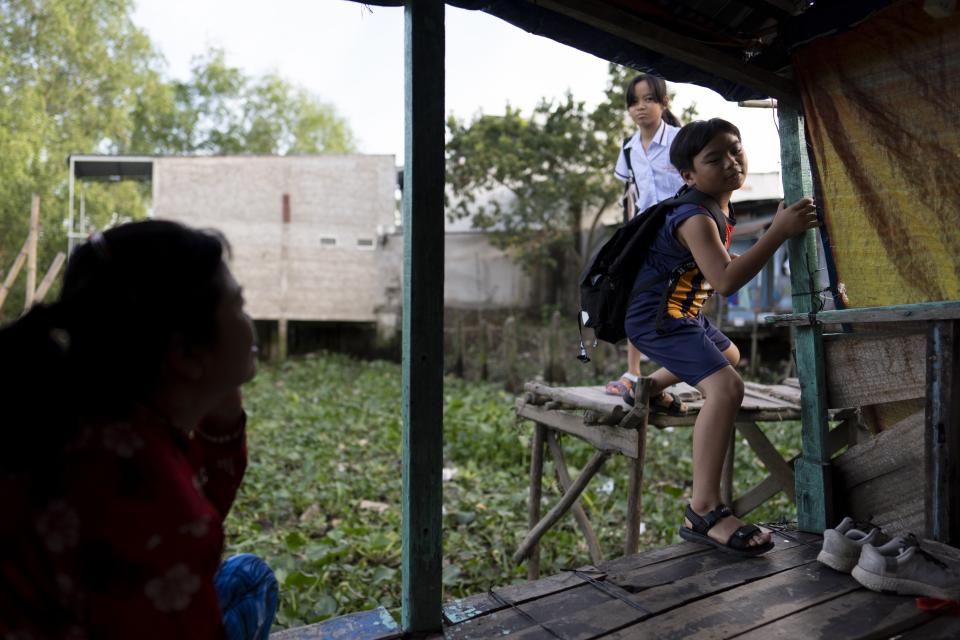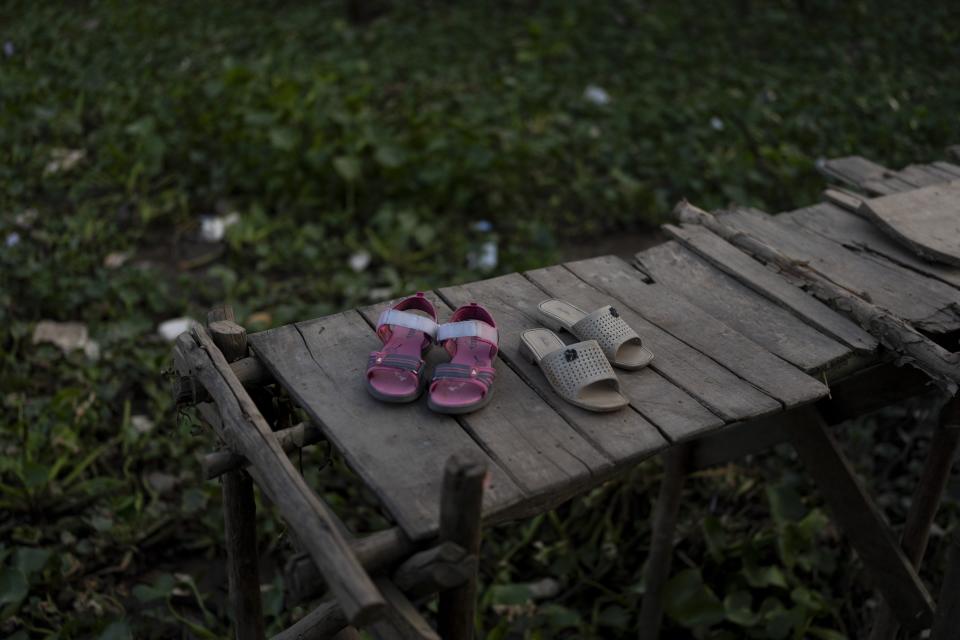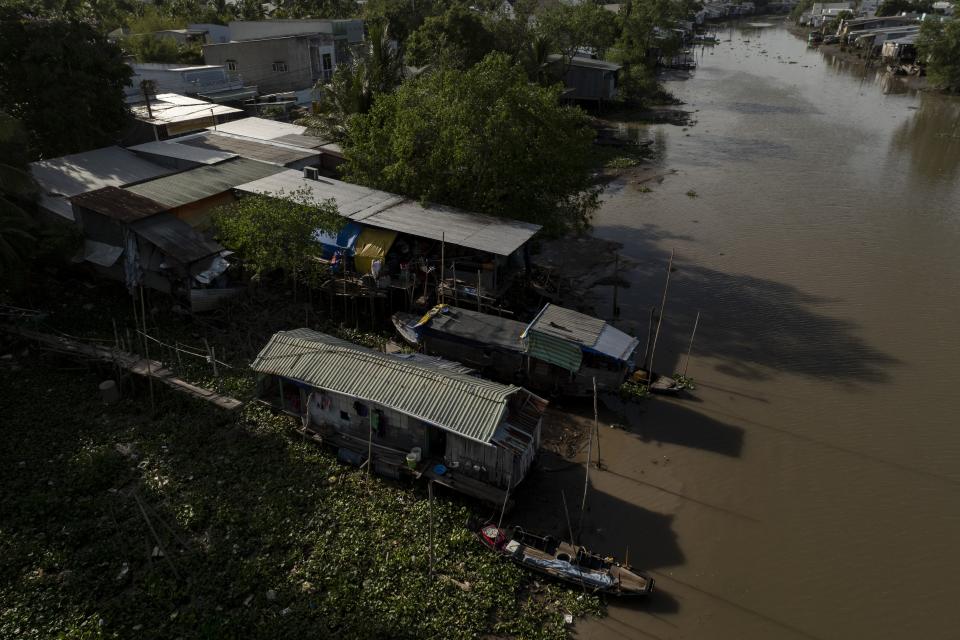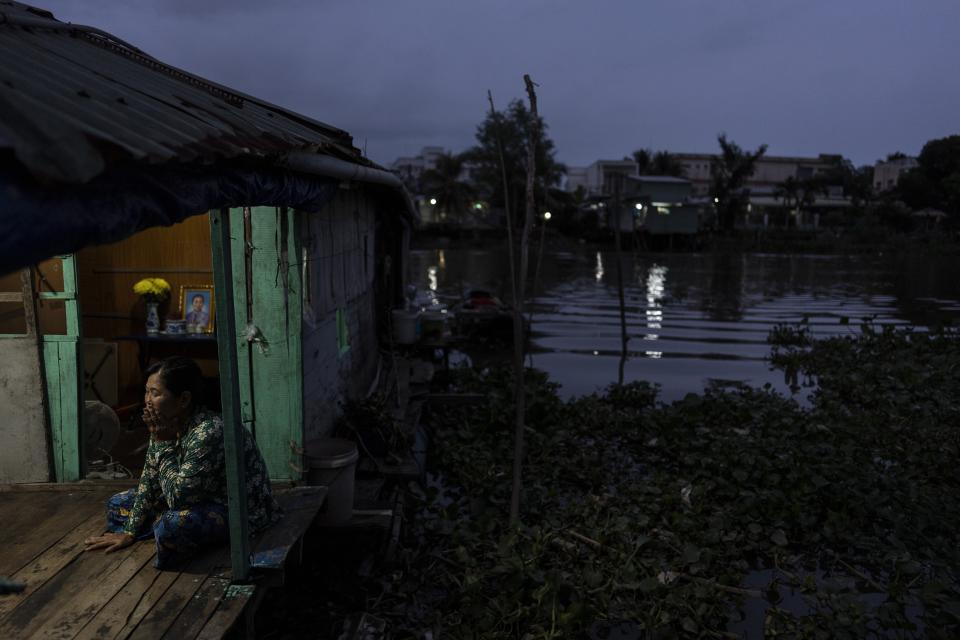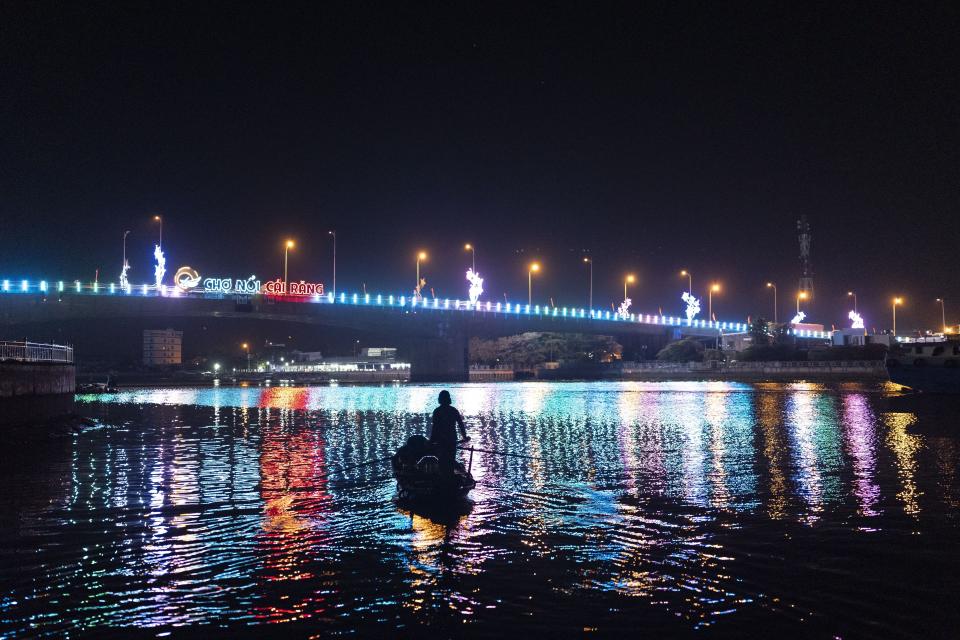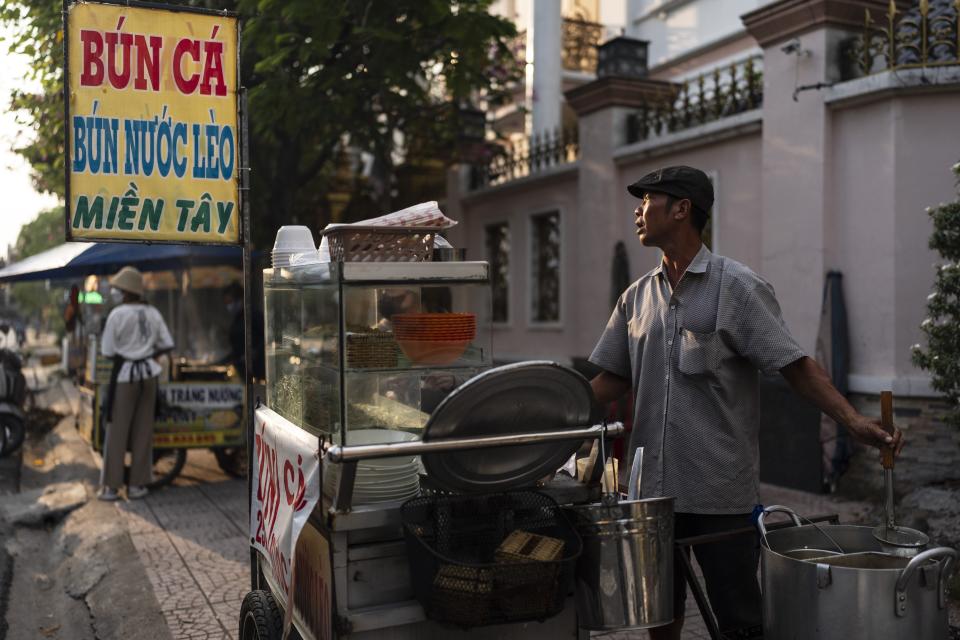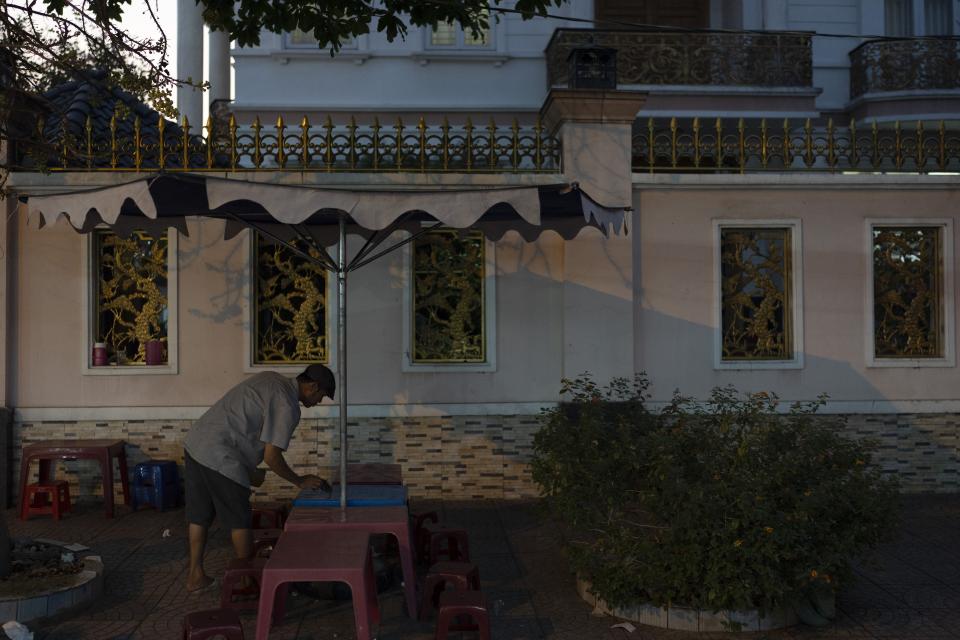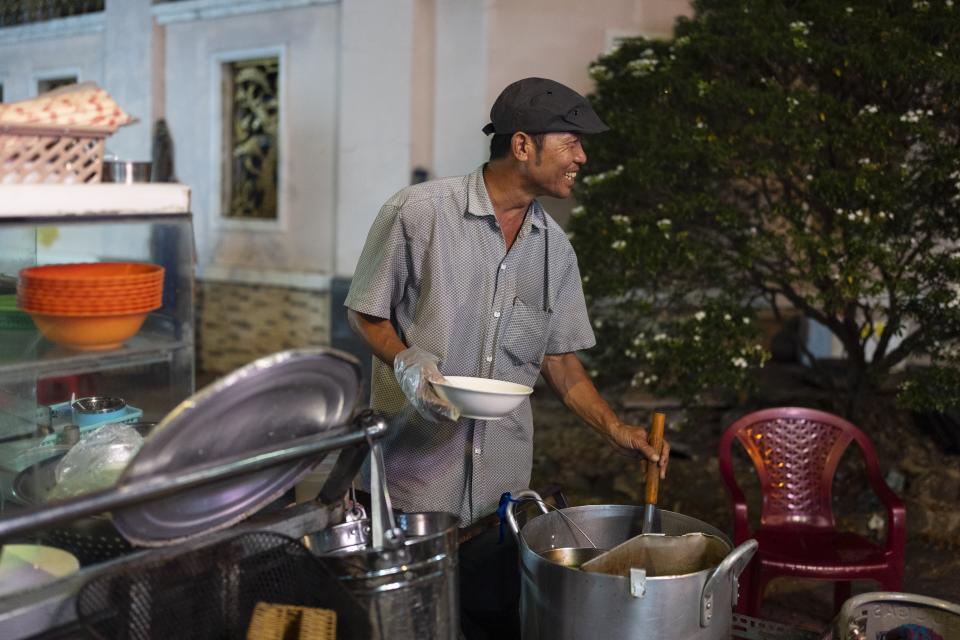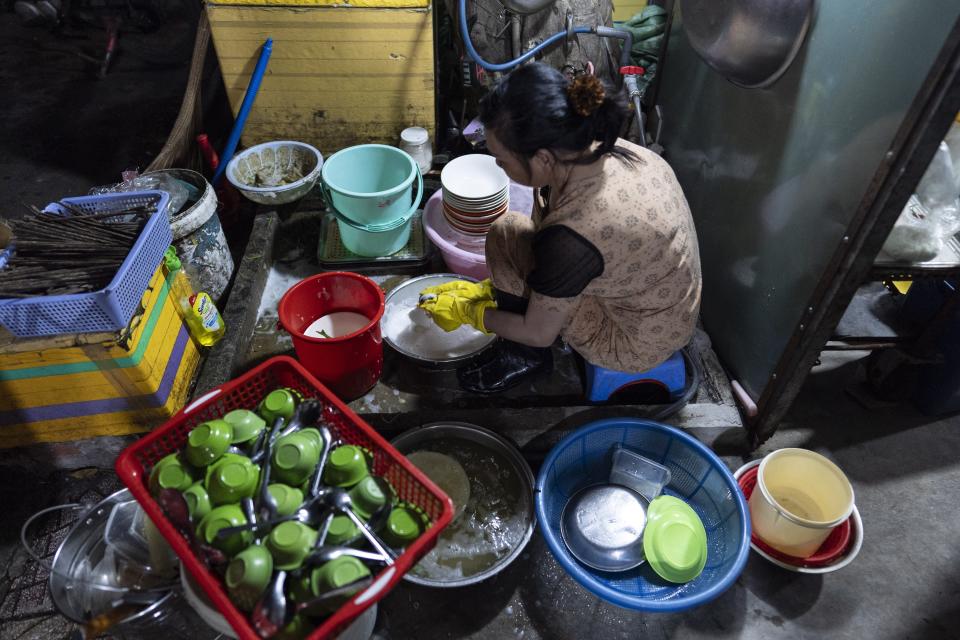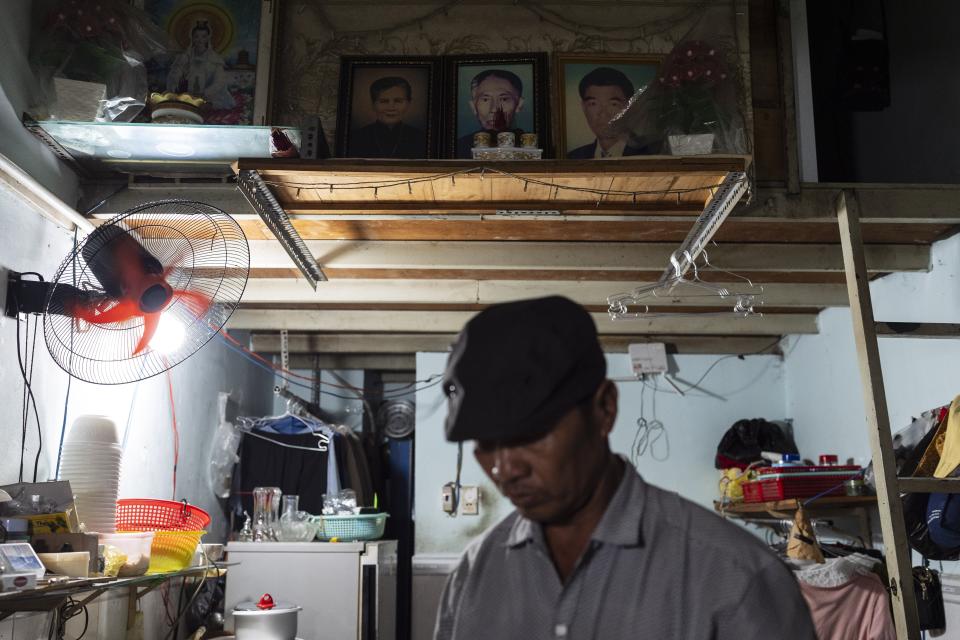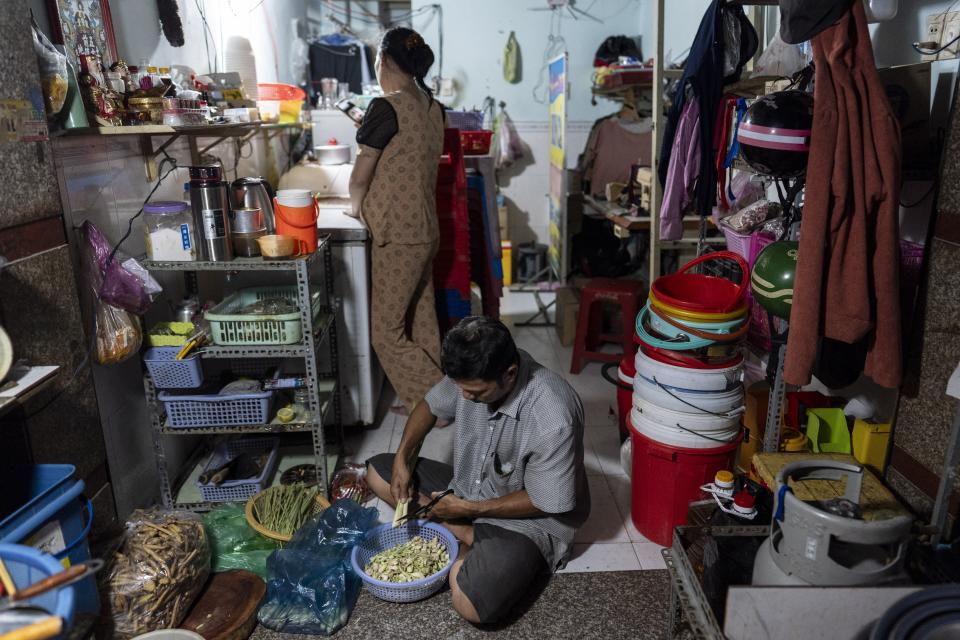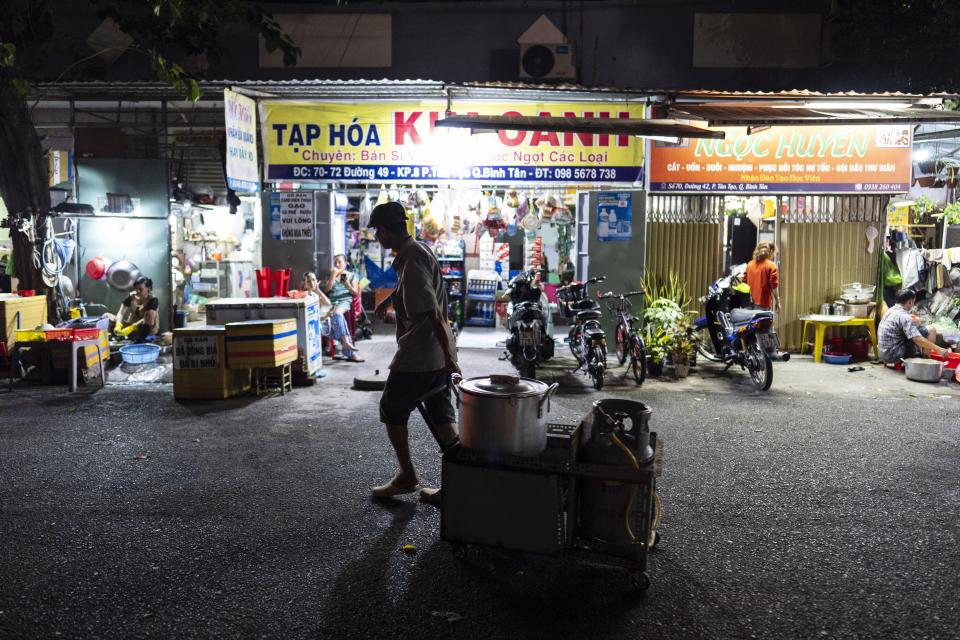CAN THO, Vietnam (AP) — Dao Bao Tran and her brother Do Hoang Trung, 11-year-old twins growing up on a rickety houseboat in the Mekong Delta, have dreams. Tran loves K-pop, watches videos at night to learn Korean and would love to visit Seoul. Trung wants to be a singer.
But their hopes are “unrealistic,” said Trung: “I know I’ll end up going to the city to try and make a living."
Such dreams have a way of dissipating in southern Vietnam's Mekong, one of the most climate-vulnerable regions in the world.
For the poor, the future is especially uncertain. A U.N. climate change report in 2022 warned there will be more floods in the wet season and drought in the dry season. Unsustainable extraction of groundwater and sand for construction have made matters worse. And with rising seas gnawing away at its southern edge and dams hemming the Mekong River upstream, farming in the fertile delta is getting harder. Its contribution to Vietnam’s GDP has dropped from 27% in 1990 to less than 18% in 2019, according to a 2020 report by the Vietnam Chamber of Commerce and Industry.
The call of the city, where factory jobs promise better salaries, is often too hard to resist for the region’s 17 million inhabitants.
The twins' single mother, Do Thi Son Ca, left to seek work in Ho Chi Minh City soon after her children were born. She left them with her mother, 59-year-old Nguyen Thi Thuy. Unable to afford rent on land, the small family has lived on a small houseboat ever since.
Thuy rents a smaller boat to sell meat and bean buns at the Cai Rang floating market, the largest of its kind in the Mekong Delta. She rises well before dawn to steam the buns in a metal urn over glowing coals nestled in the middle of the boat, standing in the bow to pull a massive pair of oars to make her way to the market.
On good days she makes about $4 — hardly enough to put food on the table. The twins have already missed two years of school when their grandmother couldn’t pay the fees and their mother, struggling in the city, couldn't help either. Now their houseboat on the Hau River, their only refuge, is in urgent need of expensive repairs and Thuy is wondering how she'll find $170 before the rainy season.
“The storms are becoming more violent,” said Thuy. In the rainy season, heavy rains can mean pumping water furiously so her houseboat doesn't sink. Flooding forces Thuy to move the boat to a bigger canal to avoid a battering if she were to remain anchored at shore, but the larger canal comes with its own risks in the form of bigger waves.
Moving away from the Mekong to bigger cities or even abroad for better prospects isn't new. But the net outmigration — the difference between people moving out of the delta and those moving in — more than tripled after 1999. Experts caution that the reasons people move are complex, and it's difficult to know how great a role climate change plays.
“Climate change is both a catalyst and accelerant for migration,” said Mimi Vu, a trafficking and migration specialist based in Ho Chi Minh City. It has hurt livelihoods and worsens inequities in a region that is still less developed than other parts of Vietnam, she said. The region lacks solid development foundations such as high rates of students finishing high school, consistent access to clean water and adequate health care.
“Every generation still struggles,” she said.
And moving to the city doesn't guarantee anything.
The twins’ mother had a new beginning when she moved to Ho Chi Minh City, finding a job in a clothing factory, marrying and having a baby. But both she and her husband were eventually laid off — among the thousands of workers in Vietnam to lose their jobs because of low overseas orders. They have since moved back to his home village. Ca, 34, never finished school and she is looking for work but does not know what they’ll do next.
“My family is poor. So I don't think too far ahead. I just hope my children can receive a full education,” she said.
For now she won’t be able to help her family with the school fees or boat repairs and also didn't see the kids for Tet, the lunar new year festival in Vietnam.
Vu, the migration specialist, said older workers who return to their villages after layoffs often don't want to go back to a city where they “had their rose-colored glasses pulled off” by the daily struggle.
That includes Pham Van Sang, 50, who left his native Bac Lieu province for Ho Chi Minh City in his 20s after unpredictable weather made growing rice and shrimp no longer viable.
Today, he and his wife, Luong Thi Ut, 51, live in a room that's about 100 square feet (9.2 meters), crammed with what they need to operate a food stall for factory workers in the city. Their main offering is a Mekong-style intense fish noodle dish that, he says, brings homesick factory workers “comfort” with a taste of their old lives.
Sang said he's haunted by memories of home, being young in the countryside, of raising shrimp with his family. “I’m sad for the generation of children and grandchildren who have no future,” he said.
Vietnam's government has approved a plan to strengthen the Mekong region's agricultural economy, which produces about half the country's rice and is critical to feed other countries, like Indonesia and Philippines, too. The plan includes trying new technologies to reduce emissions from rice while increasing yields and profits, creating more fisheries and fruit orchards, and building airports and highways to lure foreign investment.
But the allure of Ho Chi Minh City — a bustling metropolis of 9.3 million people, Vietnam's financial engine — is hard to resist for many, especially the young. Even those in the countryside see moving to the city, or better yet moving abroad, as the fastest way out of poverty, said Trung Hieu, 23.
Hieu lives in a dormitory that he shares with another young man from the delta. He works two jobs — a 12-hour shift in a factory that makes pharmaceutical parts followed by hours spent riding his motorcycle for a Vietnamese ride-hailing company. He enjoyed school and wanted to be a literature teacher, but his family’s farm income in Dong Thap province in the Mekong had been decimated over the years. When he finished school, his family had to choose whether to send him to college or allow his younger sister to finish school.
He chose to move to the city so that he could send money back home. “My sister is doing well in school, I'm very happy,” he said.
Hieu initially found the city bewildering and felt homesick, but slowly the city grew on him. 'You gradually adapt, you survive," he said. He is learning how to thrive in the city: hard work, but also networking and communicating.
Still, he hopes to someday go to college and fulfill his dream of becoming a teacher, and work in a school in the delta like the ones he and his sister studied in. He said it would make him feel closer to home.
“Everyone wants to go back to where they were born and raised,” he said.
______
The Associated Press’ climate and environmental coverage receives financial support from multiple private foundations. AP is solely responsible for all content. Find AP’s standards for working with philanthropies, a list of supporters and funded coverage areas at AP.org.


